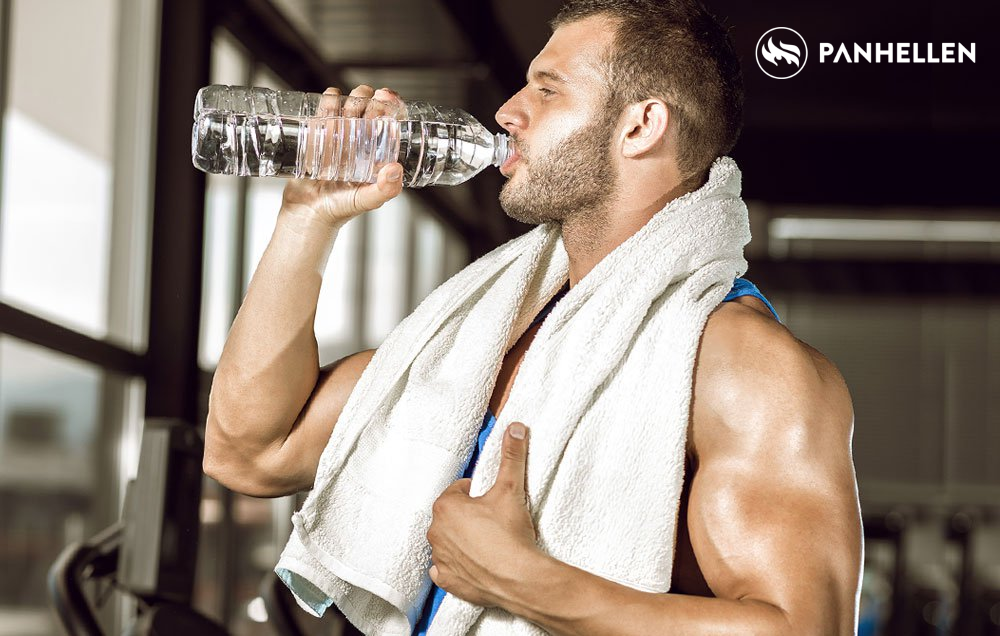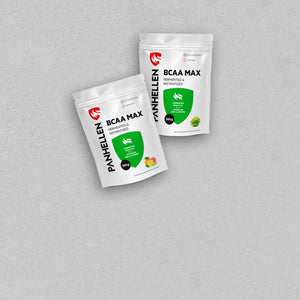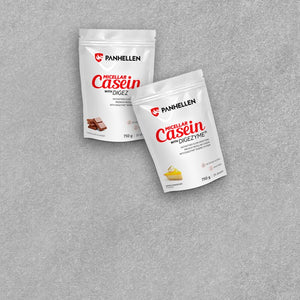IT DOESN'T MATTER WHAT YOU DRINK

Water is the most important ingredient for health and physiological functioning. An average person's fluid requirement is 1.5-2 liters per day, an athlete's requirement is higher due to increased water loss during physical exertion (sweating, rapid breathing). Adequate fluid consumption and replacement largely determines sports performance! On the other hand, we hear less about what to drink and what to watch out for.
From our previous article , we learned that the largest part of our body (60 percent on average) is made up of water. 40 percent of our body weight is the part of the body fluid inside the cells, 20 percent is the part outside the cells. For all people, but especially for athletes, it is important to keep in mind that it is not only necessary to replace fluid and fluid loss quantitatively, but also to replace it qualitatively!
The reason for this is very simple: the lost fluid (sweat) is not only pure water, but also contains electrolytes that play a role in cell function, intercellular communication and other important physiological processes. Such minerals, e.g. sodium, potassium, chloride, magnesium, zinc, iron or copper. Both water and the listed ions are excreted from the blood.
Due to the constant composition of the blood, the so-called osmotic pressure. Although the volume, composition, and thus the pressure of the body's fluid spaces are relatively constant - since the body always strives for internal constancy (maintaining homeostasis) - its work can be made easier if we take in a liquid similar to the composition and osmotic pressure of blood. It depends on the osmotic pressure whether a given liquid replaces or removes water from the blood, thus from the body. They correspond to the pressure of the circulating blood, the so-called isotonic drinks . However, there are also hypotonic and hypertonic liquids.

HYPO, HYPER OR IZO?
The density of hypotonic drinks is lower than the density of the liquid in the body (blood concentration). Such drinks are (pure) water and fruit juice diluted in a ratio of 2:1 (or more). Their absorption is fast, the body gets water quickly, but it is excreted just as quickly, so it is not the most optimal choice during sports activities in terms of maintaining good performance and increasing performance. They quickly reduce the feeling of thirst, but do not contain the electrolytes and carbohydrates that an athlete needs. They are suitable for quick "fluid filling" after exercise, but only if the replacement is followed by a meal within 1-2 hours - otherwise, we only "dilute" the blood.
The density of hypertonic fluids is higher than the fluid density found in the body. They are absorbed slowly, so they do not suddenly burden the body, but the body first dilutes them with its own fluid, so hypertonic drinks take away water. Until they achieve the expected effect (i.e. they hydrate), they can also cause digestive complaints (bloating, stomach pains). The reason for this is their high concentration, i.e. their high carbohydrate and sugar content. Examples of such hypertensive drinks are undiluted fruit juice, milk, cola and other soft drinks.
An isotonic drink is therefore the most optimal choice during sports. Their composition corresponds to the osmotic concentration of the blood, thus they are quickly absorbed and are able to replace the fluid and electrolytes lost through sweat. Many people claim that it is only recommended to consume sports drinks during exercise of more than 50-60 minutes. This is basically true: when exercising for more than an hour, we must drink isotonic fluids! On the other hand, a sports drink is more beneficial than a hypo- or hypertonic liquid during any sports activity!
RAPIDLY ABSORPTED CARBOHYDRATES
Sports drinks contain sugars in the right quantity and quality, thereby ensuring the maintenance and increase of performance. Simple carbohydrates , such as glucose (grape sugar), fructose (fruit sugar), sucrose (crystal sugar), maltose, dextrin, maltodextrin or carboline, which provides the best effect, are capable of quick and immediate absorption and energy supply .
OTHER INGREDIENTS OF SPORTS DRINKS
The presence of minerals is also essential for proper muscle function and hydration. It is important that our drink contains the right proportion of sodium and potassium . Sodium is an important, but not decisive (i.e. not present in large quantities) component of isotonic drinks. There is just enough in them that helps with perfect fluid replacement. Increased sodium loss can play a role in the development of muscle spasms and muscle weakness. It stimulates the thirst mechanism, thereby providing our body with just as much liquid as it needs. It improves the water absorption capacity of the small intestine, and also helps with water retention and the reduction of urine output, further aiding rehydration. Magnesium, zinc, iron, copper or calcium are often found in isotonic drinks - all of them help to fill carbohydrate stores and store energy. Many vitamins (mainly B vitamins) that keep the metabolism alive and stimulating can also be found on the label of sports drinks.
IDEAL SPORTS DRINK IN EXERCISE
- Optimal carbohydrate content: 4-8%.
- Do not only contain glucose or fructose, but also more complex carbohydrates, such as maltodextrin or carboline (the latter is the most preferable) . In this way, we can prevent a rapid rise in blood sugar level from being followed by a very rapid "fall back", thereby causing malaise, dizziness, fainting and impaired performance. Secondly, drinks containing only dextrose or fruit sugar can also cause nausea due to their concentration.
- Your sports drink should contain 400-1000 mg of sodium and 120-220 mg of potassium per liter!
- If the drink you choose does not contain vitamins or other ingredients (e.g. L-carnitine, creatine, vitamin B), it can still be effective. The added vitamins and other substances are not intended to compensate for vitamin loss, nor are they present due to the optimal concentration. In general, they can always give you something extra, but you have to keep in mind that it is often unnecessary to introduce them into the body.
- If you make the isotonic drink from powder or tablets, do it in accordance with the instructions for use (dilution ratio)! This way your concentration will be optimal.

ALL SPORTS DRINKS ARE ENERGY DRINKS, BUT NOT ALL ENERGY DRINKS ARE SPORTS DRINKS!
Both advertisements and experience tell us that we live our everyday life fast, giving it our all. For this, we often use (consume) "stimulants", such as caffeinated energy drinks or coffee.
We can also hear that someone consumes a sports drink for better performance. The reason for this is that many people identify them with energy drinks, and unfortunately, we also find them side by side on store shelves. Mistakenly! Sports drinks must not be carbonated. They cannot contain caffeine (or other stimulants), preservatives, or artificial colors - unlike energy drinks. (Note: caffeine is a strong diuretic, increases dehydration and can cause negative electrolyte balance.)
Although we can generally say that sports drinks have no health-damaging effects, so anyone, even the average person, can consume them. Regardless, it has no effect on the performance of inactive people, and in fact, it adds unnecessary sugar and calories to the body. Isotonic drinks were specially developed for athletes, and their consumption is recommended for active people - both hobbyists and elite athletes.
At the same time, sports drinks can also be a good service for people who do physical work, work in hot weather, or struggle with vomiting and diarrhea.
THE CARBOLYN
Karbolyn deserves a separate paragraph, which is a "homopolysaccharide" (complex carbohydrate) protected by a world patent, which is absorbed faster than dextrose or maltodextrin carbohydrates and provides lasting energy for the body without additional bloating. It is made from starchy ingredients, has a high osmolality and is completely sugar-free. It is particularly suitable for rapid regeneration between heavy loads repeated in a short period of time, for loading carbohydrates, and can also be easily incorporated into the quick and gentle refueling of athletes competing in demanding weight-group sports. When used in combination with amino acids and proteins, it can also be used to increase muscle mass.
Karbolyn can be obtained in powder form, and since it dissolves well, it can be easily mixed in water. In this way, we can prepare our ideal sports drink in a few seconds. Add 50g of carbolyn to 4-5 dl of water.
CARBO 100
A unique active ingredient protected by a world patent
- Anti-catabolic effect
- Energizing
- Regeneration
- A unique active ingredient protected by a world patent
- Optimizing blood sugar levels
The active ingredient of PANHELLEN CARBO 100 is Kabolyn®, which is a "homopolysaccharide" (complex carbohydrate) protected by a world patent , which is absorbed faster than dextrose or maltodextrin carbohydrates and provides lasting energy for the body without additional bloating. It is made from starchy ingredients, has a high osmolality and is completely sugar-free . Apart from Karbolyn, PANHELLEN CARBO 100 does not contain any other ingredients, additives or flavorings. When mixed in water, its pleasant, restrained natural taste makes the addition of flavoring additives unnecessary, so the product contains 100% of the pure active ingredient.













